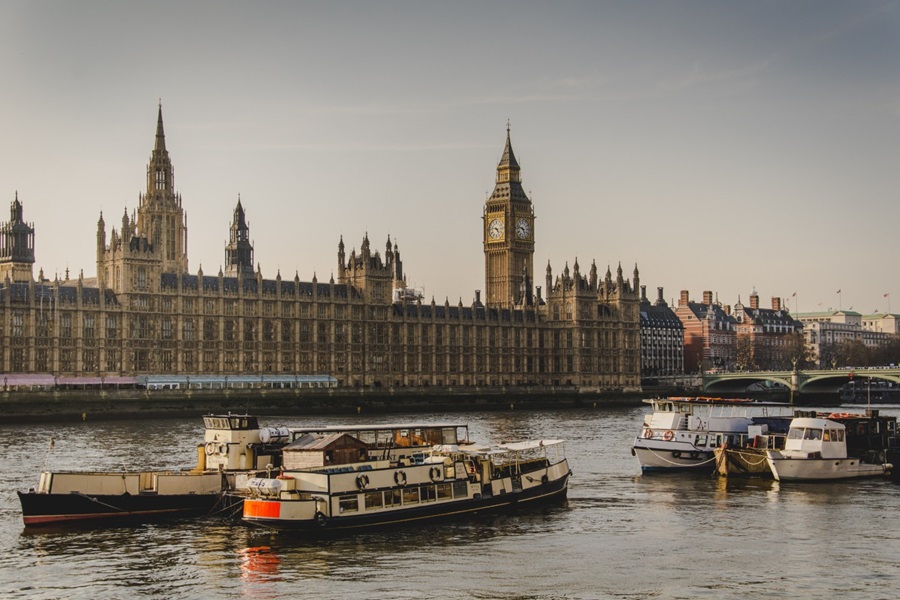Kantar voting intention research (9am 9 Dec – 10am 11 Dec 2019):
- Conservatives 44% (nc vs 3rd Dec)
- Labour 32% (nc)
- Liberal Democrats 13% (-2)
- SNP 4% (+1)
- Green 3% (nc)
- Brexit Party 3% (+1)
- Other 1% (-1)
In our final poll before the General Election, we have recorded a 12-point Conservative voting intention lead over Labour. If these intentions hold, we would expect a modest Conservative majority but, given local dynamics, there is uncertainty over the precise scale of this majority. Even a hung parliament is consistent with this data, albeit an unlikely outcome.
It must be noted that while we have seen no change in voting intentions, two dynamics that could potentially be in Labour’s favour have emerged in the last week. These could well have an impact on the undecided in the hours before the polls open and during election day. First, the NHS is increasingly becoming an important issue in choosing who to vote for. Secondly, when it comes to choosing the best leader for Britain, the gap between Johnson and Corbyn has narrowed.
We estimate that turnout from registered voters will be 69% with strong variation between age groups. Among 18-24-year olds, we estimate turnout at 46%, rising to 57% among 25-34 year olds, 65% among 35-44 year olds and topping out at 84% of those aged 65+. Given that party choice is also closely related to age, even a small shift in turnout patterns could play a major role in deciding the election. If there were no such turnout differences, the Conservative lead of 12 points would shrink to 7 points, strongly increasing the probability of a hung parliament.
Data collection finished early on Wednesday and that still leaves almost two days for public opinion to change. Here are some things to bear in mind:
- Around 14% of likely voters have not expressed a firm preference. This group could still potentially change the outcome of the election. It is notable that women voters are less likely than men to have expressed a firm preference (82% compared with 90% for men).
- On average, women are less positive than men towards Boris Johnson (42% of men but only 32% of women think he would be the best leader for Britain). Consequently, it is possible that so-far undecided women could break more towards the Labour Party than the Conservative Party. (Although, only 27% of men and 22% of women state that Jeremy Corbyn would be the best leader for Britain – see below).
- If the NHS continues to dominate the airwaves this could be a factor in people changing their mind. Compared with last week, there has been an increase in the proportion of the British public that say that the NHS is the most important issue in deciding how to vote (27%, up from 23%). Nevertheless, Britain’s planned exit from the EU continues to be the single most important issue (34%, but down 5%pts since last week).
- Younger people (aged under 35) tend to favour the Labour Party over the Conservative Party. However, they tend to turn out at much lower rates than those aged 65+ who heavily favour the Conservative party. If the Labour Party can sufficiently engage those aged under 35 this could lead to a much closer election.
How the public are deciding
- 34% (-5 vs Dec 3rd) say that the most important issue when deciding who to vote for is Britain’s planned exit from the EU;
- NHS is the most important issue for 27% (+4), followed by the economy (11%, +3), immigration (7%, +2), the environment (6%, +1) and reducing crime (4%, nc);
- 54% (+6) of people stating that they will vote for Conservatives say that the party is “the best of a bad bunch”, and 49% (nc) of people planning to vote for Labour say the same. For many voters, the choice before them is not an inspiring one.
Views on the next Prime Minister
When asked to choose between Boris Johnson and Jeremy Corbyn as the best leader for Britain, 37% (-4 vs Dec 3rd) selected Boris Johnson, compared with 25% (+3) who selected Jeremy Corbyn. However, nearly one third, 30% (+3) selected neither, and 9% (-1) said they did not know who was best.
There are some differences between men and women on who would be the best leader for Britain:
- Boris Johnson 42% (-6) men vs 32% (-2) women;
- Jeremy Corbyn 27% (+5) men, 22% (+1) women;
- Neither 27% (+2) men, 33% (+3) women;
- Don't know 5% (+1) men, 12% (-3) women.
Methodological information
The survey data and further details on the methodological approach can be found here.
A representative sample of 2,815 adults in Great Britain were interviewed between 9am on the 9th December and 10 am on the 11th December 2019. All interviews were conducted as online self-completion. The Kantar online access panel was the main sample source.
The data was weighted to match population totals for age, gender, working status, 2017 General Election voting patterns, 2016 EU referendum voting patterns, education, region, and likelihood to vote in the next General Election.

